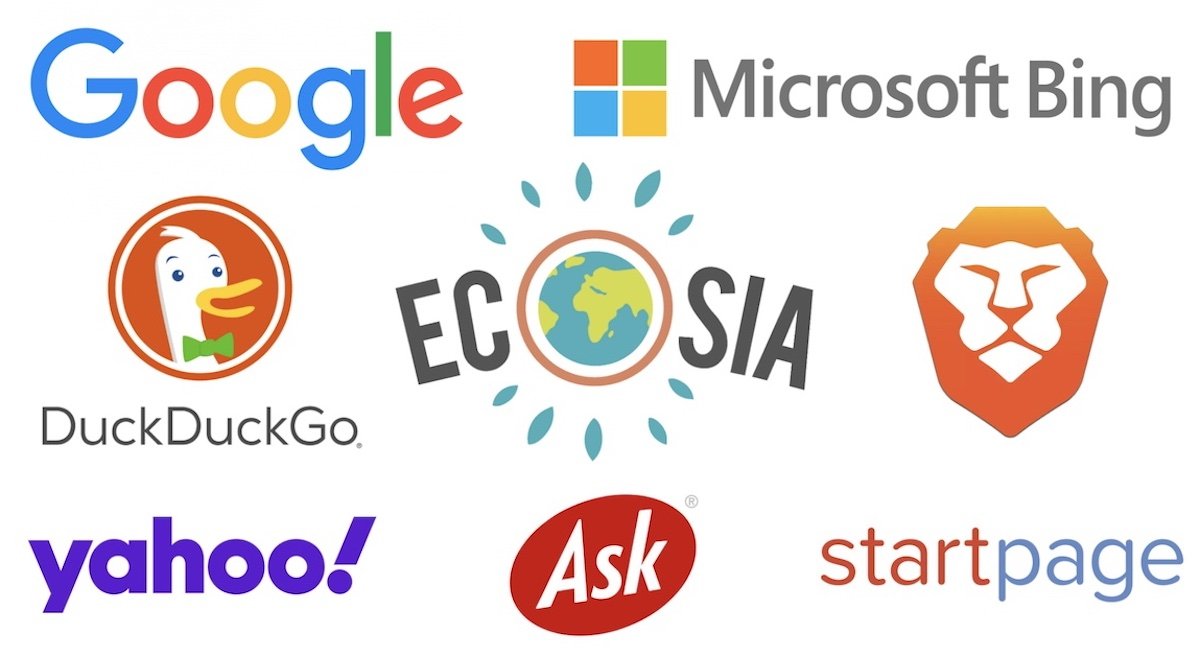Search Engines: Your Ultimate Guide To Navigating The Digital Universe
Hey there, internet explorer! Ever wondered how search engines work and why they're such a big deal? In today's digital world, search engines are like your personal tour guide through cyberspace. They’re the magic behind finding what you need in seconds, whether it's a cat video or the answer to life’s deepest questions. So, let’s dive into the world of search engines and uncover their secrets.
Now, if you're thinking "what exactly is a search engine?" – you're in the right place. We’ll break it down for you. A search engine is essentially a tool that helps you find information on the internet by indexing websites and providing relevant results based on your queries. It’s like having a super-smart librarian who knows exactly where to find what you’re looking for.
But here's the kicker – not all search engines are created equal. Some are faster, others are more accurate, and a few even offer privacy features. Understanding how they work can make your online experience smoother and more efficient. So buckle up, because we’re about to take you on a journey through the fascinating world of search engines!
- Unlocking The Potential Of Tacswap Your Ultimate Guide
- The Washington Post Your Ultimate Source For Indepth News And Analysis
Understanding the Basics of Search Engines
Alright, let’s get down to business. At its core, a search engine is a software system designed to help users find information on the World Wide Web. It works by crawling, indexing, and ranking web pages based on relevance to the user’s search query. But how does it all come together? Let’s break it down step by step.
Crawling: This is where it all starts. Search engines send out bots, also known as spiders or crawlers, to visit websites and gather information. These bots follow links from one page to another, creating a massive map of the internet.
Indexing: Once the bots have collected data, it’s time to organize it. The search engine stores this information in an index, which is essentially a massive database of all the pages it has discovered. This allows the engine to quickly retrieve results when a user searches for something.
- Iceporncasting The Ultimate Guide To Understanding Navigating And Staying Safe
- Increditools Your Ultimate Financial Toolkit For Simplified Living
Ranking: Finally, when you type in a search query, the engine uses complex algorithms to rank the pages in its index based on relevance, quality, and other factors. The goal is to deliver the most useful results at the top of the page.
How Search Engines Impact Your Daily Life
Think about it – how often do you use a search engine in a day? Whether you're looking up recipes, checking movie times, or researching for work, search engines play a crucial role in our lives. They’ve become so integral that it’s hard to imagine a world without them.
Here are a few ways search engines impact your daily routine:
- They save you time by providing instant access to information.
- They help you make informed decisions by offering a wide range of perspectives.
- They connect you with people and communities who share your interests.
But it’s not just about convenience. Search engines also influence how businesses operate, how news spreads, and even how we learn. They’ve transformed the way we interact with the world, making knowledge more accessible than ever before.
Top Search Engines You Should Know
While Google dominates the search engine landscape, there are plenty of other players in the game. Each one has its own strengths and weaknesses, so it’s worth exploring your options. Here’s a quick rundown of the top search engines:
Google: The King of Search
Let’s face it – Google is the big kahuna of search engines. With over 90% market share, it’s hard to ignore its influence. Google’s success lies in its advanced algorithms, which deliver highly relevant results in milliseconds. Plus, its user-friendly interface and vast array of features make it the go-to choice for millions of users worldwide.
Bing: The Underdog with a Twist
Microsoft’s Bing might not get as much attention as Google, but it’s still a formidable contender. Bing offers a visually appealing interface and often provides unique results that you won’t find on Google. It’s also integrated with Microsoft’s ecosystem, making it a great option for Windows users.
DuckDuckGo: Privacy First
If privacy is your priority, DuckDuckGo is the search engine for you. Unlike Google and Bing, DuckDuckGo doesn’t track your searches or store your personal data. This makes it an attractive choice for users who value their online privacy.
How Search Engines Work: A Deeper Dive
So, we’ve covered the basics, but how exactly do search engines work behind the scenes? It’s a complex process involving several key components. Let’s take a closer look:
Crawlers: The Internet’s Invisible Explorers
Crawlers are the unsung heroes of the search engine world. These automated programs tirelessly traverse the web, collecting data and updating the search engine’s index. They follow links from one page to another, ensuring that the engine always has the most up-to-date information.
Algorithms: The Brain of the Operation
Algorithms are the secret sauce that makes search engines tick. These complex mathematical formulas determine which pages appear at the top of the search results. Factors like keyword relevance, page authority, and user behavior all play a role in shaping the final ranking.
Ranking Signals: What Makes a Page Stand Out
Search engines use a variety of ranking signals to evaluate web pages. Some of the most important ones include:
- Keyword placement and density
- Backlinks from authoritative sites
- Page load speed
- Mobile-friendliness
- User engagement metrics
By optimizing these factors, webmasters can improve their chances of ranking higher in search results.
Search Engine Optimization (SEO): The Key to Success
If you’re running a website, SEO is your best friend. It’s the practice of optimizing your site to rank higher in search engine results pages (SERPs). The better your SEO, the more visibility you’ll have, and the more traffic you’ll attract.
On-Page SEO: Your Website’s Foundation
On-page SEO involves optimizing individual web pages to rank higher and earn more relevant traffic. This includes:
- Using relevant keywords in your content
- Writing compelling meta titles and descriptions
- Improving page load speed
- Creating high-quality, shareable content
By focusing on these elements, you can lay a strong foundation for your website’s success.
Off-Page SEO: Building Authority
Off-page SEO refers to activities outside your website that can influence your rankings. The most important factor here is backlinks – links from other websites that point to yours. The more high-quality backlinks you have, the more authoritative your site appears to search engines.
The Evolution of Search Engines
Search engines have come a long way since their humble beginnings. From simple keyword matching to advanced AI-driven systems, they’ve evolved to meet the ever-changing needs of users. Let’s take a trip down memory lane and see how far they’ve come.
The Early Days: Basic Keyword Matching
In the early days of the internet, search engines like Archie and Gopher relied on basic keyword matching to deliver results. While effective for simple queries, they struggled with more complex searches. This led to the development of more sophisticated systems like AltaVista and Yahoo!.
The Rise of Google: A Game-Changer
When Google launched in 1998, it revolutionized the search engine landscape. Its PageRank algorithm, which evaluates the quality and quantity of backlinks, set a new standard for relevance and accuracy. Over the years, Google has continued to innovate, introducing features like personalized search, voice search, and image recognition.
Challenges Facing Search Engines Today
Despite their many advancements, search engines face several challenges in today’s digital landscape. From fake news to algorithmic bias, they must navigate a complex web of issues to deliver accurate and trustworthy results. Here are a few of the biggest challenges:
Fighting Fake News and Misinformation
With the rise of social media, fake news has become a major concern for search engines. They must constantly update their algorithms to filter out misleading content and promote credible sources. This requires a delicate balance between freedom of speech and responsibility.
Addressing Algorithmic Bias
Algorithmic bias occurs when a search engine’s results favor certain groups or perspectives over others. This can happen unintentionally due to the data used to train the algorithm or the way it’s designed. To combat this, search engines must regularly audit their systems and make adjustments as needed.
The Future of Search Engines
What does the future hold for search engines? With advancements in AI, machine learning, and natural language processing, they’re poised to become even more powerful and intuitive. Here are a few trends to watch:
Voice Search: The Next Big Thing
As voice assistants like Siri and Alexa become more popular, voice search is set to take center stage. Search engines are adapting by improving their ability to understand natural language and provide conversational responses.
Visual Search: Beyond Text
Visual search allows users to search for images or objects using pictures instead of text. This technology is still in its early stages, but it has the potential to revolutionize the way we interact with search engines.
Conclusion: Your Journey Through the Digital Universe
Well, there you have it – a comprehensive guide to search engines and their role in our lives. From understanding how they work to exploring the challenges they face, we’ve covered a lot of ground. But remember, the world of search engines is constantly evolving, so stay curious and keep learning.
So, what’s next? Take a moment to reflect on what you’ve learned and consider how you can apply it to your own online experiences. Whether you’re optimizing your website for SEO or simply improving your search skills, there’s always room for growth.
And don’t forget to share this article with your friends and family! The more people know about search engines, the better equipped we all are to navigate the digital universe. Thanks for joining me on this journey – until next time, happy searching!
Table of Contents
- Understanding the Basics of Search Engines
- How Search Engines Impact Your Daily Life
- Top Search Engines You Should Know
- How Search Engines Work: A Deeper Dive
- Search Engine Optimization (SEO): The Key to Success
- The Evolution of Search Engines
- Challenges Facing Search Engines Today
- The Future of Search Engines
- Conclusion: Your Journey Through the Digital Universe
- Gnula Your Ultimate Movie Streaming Companion
- Apn Etv Your Ultimate Guide To Stream Download And Enjoy

Top 10 Search Engines The Ultimate List of Leading Online Search

Top Search Engines Logos in the World

The best search engines to use, if you're tired of Google General